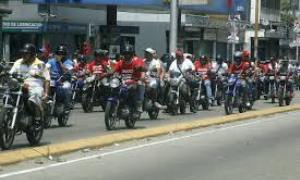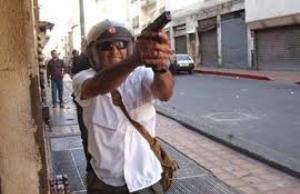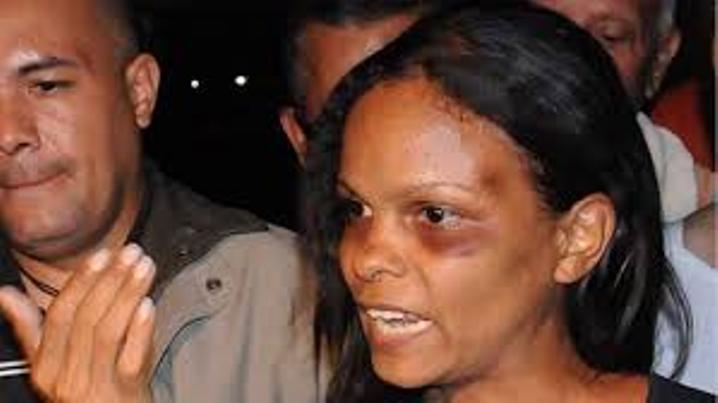EspañolDemocracy as we know it today implies a number of principles: separation of powers, the right to free and fair elections, the right to political association, freedom of speech, personal safety, and the enforcement of the Universal Declaration of Human Rights set forth by the United Nations.
The Venezuelan government violates them all on a daily basis. After 57 years of elections in the South American nation, here are just 10 reasons why Venezuela can no longer be considered a democratic country.
1. Elections are not transparent

In 2013, Nicolás Maduro won the presidential election by a small margin compared with the number of invalid votes. This dubious outcome led opposition leaders to request an audit of the vote.
The audit took place, but not under the conditions the opposition demanded. The defeated candidate, Henrique Capriles, now governor of Miranda, called it a “farce” and accused Chavistas of “stealing his victory.”
If popular will, one of the two pillars of democratic legitimacy, is uncertain in Maduro’s case, the National Electoral Council has not helped to improve the perception of government fairness. A survey published by the Andrés Bello Catholic University in June revealed that 64 percent of the public do not trust the institution in charge of the country’s elections.
2. There is no separation of powers
The Supreme Court at the Service of the Revolution, a book by Venezuelan researchers Luis Alfonso Herrera and Antonio Canova, shows that the nation’s top court has sided with the government in all 9,000 cases between 2006 and 2014 involving disputes between the state and citizens.
And that’s just the tip of the iceberg in Venezuela’s judiciary, where 70 percent of judges have not been confirmed to their posts. In addition, two former Supreme Court justices, now in exile and considered fugitives by the system they once represented, have acknowledged they discussed and drafted sentences in sensitive cases at the vice president’s office.
“In Venezuela, there is no rule of law,” as Lilian Tintori has put it, is a phrase that is often repeated in the country.
3. Freedom of expression is disappearing
In 2007, the country’s main broadcasting network, RCTV, was forced to shut down when the government refused to extend its license, and independent reporting has slowly disappeared since. It is now practically impossible to find traditional media that dare to criticize the regime.
In 2008, Communications Minister Andrés Izarra’s said the government should create a “communications hegemony,” and followed up by shutting down 34 radio stations.
In 2013, an anonymous consortium purchased two of the three major Venezuelan newspapers, Últimas Noticias and El Universal, as well as the Globovisión television network, even though such purchases are expressly prohibited in international regulations that protect freedom of the press. Obviously, their editorial lines have mutated to portray the government in a more favorable light, as evidenced by the “Owners of Censorship” report from the watchdog Press and Society Institute (IPYS).
The internet in Venezuela has not been without censorship either. The telecommunications regulatory body CONATEL blocked over 1,000 websites in 2014. Meanwhile, seven dissident Twitter users are sitting behind bars, and the number of attacks against journalists is on the rise.
4. Insiders get impunity, while opponents get imprisoned

Venezuelan political leader Leopoldo López has been in jail for 18 months over a protest that turned violent on February 12, 2014. During a series of anti-government demonstrations that extended for several weeks, police officers murdered 23-year-old Bassil Da Costa. The trial for the accused is in “legal limbo,” as are the investigations into the 48 deaths that occurred in the following months, all of which the government blames on López.
A murderer in Venezuela has a slim chance of ever seeing a day in court, as 94 percent of the 25,000 homicides registered every year go unpunished. The government fails to prosecute even the most flagrant instances of corruption, except for cases in which the suspect is no longer a friend of the “Bolivarian revolution.”
5. There is no economic liberty
The Fraser Institute’s 2014 Annual Report on Economic Freedom ranks Venezuela as the world’s least economically free country, excluding Cuba and North Korea for lack of data. Currency and price controls, and legislation such as the recently approved Organic Law on Fair Prices, which establishes punishments of up to 16 years in prison (more than for kidnapping), are just a few examples of the limits to economic liberty.
For these reasons, the country received just US$320 million in foreign investment last year. Official figures try but cannot hide the chaos that is Venezuela’s economy. The Central Bank has not yet released statistics this year, in blatant violation of the Constitution and Venezuelan law.
6. There are no property rights
Government expropriations have led to 27 lawsuits against the Venezuelan state at the International Center for Settlement of Investment Disputes (CIADI), to the tune of US$30 billion in total. Losing these cases would bankrupt the country.
But Venezuelan citizens, who cannot turn to the CIADI, have suffered outright confiscation, since the state can take away an individual’s private property without court permission.
The wealth of private citizens has also been expropriated through the manipulation of the national currency. Thanks to the Central Bank’s uncontrolled printing of fiat money and other misguided economic measures, 100 bolívares today will buy what one bolívar did in 2008.
7. There is no right to privacy
State-run media, like the Venezolana de Televisión (VTV) network, regularly broadcast video and audio clips from recordings of private telephone calls of members of the opposition.
Without explaining whether the recordings were authorized by a judge, or if they are part of an ongoing investigation, Chavista officials use these to ridicule opponents and even reveal details about their private lives.
This intrusion is not limited to politicians: the government monitors the activity of public employees on social networks and can fire them over their political beliefs.
Public ridicule is the main goal. Both President Maduro and National Assembly President Diosdado Cabello routinely accuse opposition leaders of being “thieves and murderers,” knowing they are immune to libel or slander lawsuits.
https://www.youtube.com/watch?v=WW4xIinkI9c
8. Congress places no check on the executive branch
Through consecutive “enabling laws” that grant Maduro executive superpowers, the most recent issued in March, the Venezuelan National Assembly has abandoned its role as the legislative branch of government.
Moreover, it fails to act as a balance of power when it systematically refuses to investigate corruption cases. And when Congress does approve an investigation, it forces the opposition to prove it’s claim is more than just a “destabilization attempt” against the government, such as the case of Banca Privada D’ Andorra.
Since the last legislative elections, four congressmen (all members of the opposition) have been removed from their seats in summary dismissals. Opposition leader María Corina Machado, the last legislator to go, was so crudely expelled from her elected post that the Academy of Political Science issued a statement denouncing the government: “Venezuela has ceased to be a constitutional state.”
9. The regime does not believe in political alternation
Recently, Maduro hinted that he would not recognize the results of the December legislative elections. In late June, he said that if the opposition were to gain control of the National Assembly, he “would take his followers to the streets.”
The ruling party’s disregard for unfavorable election results is nothing new. “They will not return” is Chavista slogan of choice, after all. When opposition candidates win local elections, the federal government resorts to sabotage, the denial of funds, and the establishment of parallel institutions to curtail their power.
10. The government constantly violates human rights

In late June, during Venezuela’s annual human-rights review before the United Nations, 30 NGOs reported violations: nearly 1,000 executions by police, the mistreatment of detainees during last year’s student protests, and “endemic” procedural delays.
Furthermore, the government has not implemented the measures that were legally approved to curb these phenomena.
Zeid Raád Al-Hussein, the UN high commissioner for human rights, said he was “very concerned about the human-rights situation in Venezuela, particularly the harsh responses to criticism and peaceful expressions of disagreement.”
 Versión Español
Versión Español












